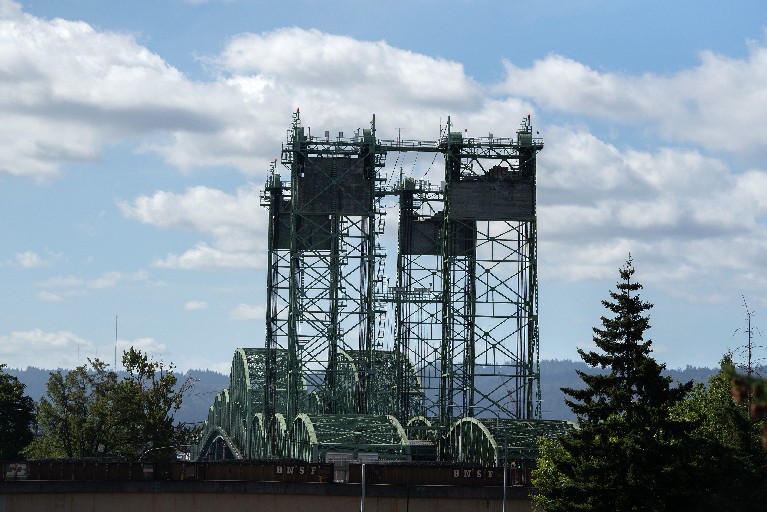Oregon Gov. Tina Kotek signed a bill last week updating the state’s authorization to toll the Interstate 5 Bridge. The move follows a Washington bill Gov. Bob Ferguson signed last month that allows the state to issue $2.5 billion in state bonds to pay for part of the bridge replacement project before tolls make up that cost.
The bills are two recent steps forward in the slow march toward the megaproject, estimated to cost $5 billion to $7.5 billion. Both come after the Trump administration stoked worries earlier this year about whether federal dollars for the project might be withheld.
“We are grateful for the ongoing leadership and support from both states that has allowed the (Interstate Bridge Replacement) Program to keep moving forward towards construction,” Greg Johnson, who leads the project, said in a statement. “The program has some crucial work that needs to be completed before shovels are in the ground, and we are working hard to ensure progress continues in the right direction to deliver a safer and more modern Interstate Bridge.”
Kotek and the Washington State Department of Transportation did not respond to The Columbian’s request for comment. Ferguson’s communications director pointed The Columbian to his remarks when he signed the bill last month.
That bill notes the two states will split both costs and toll revenues. It then authorizes Washington to issue and sell up to $2.5 billion in state general obligation bonds to finance the project — $900 million more than previously anticipated due to inflation.





